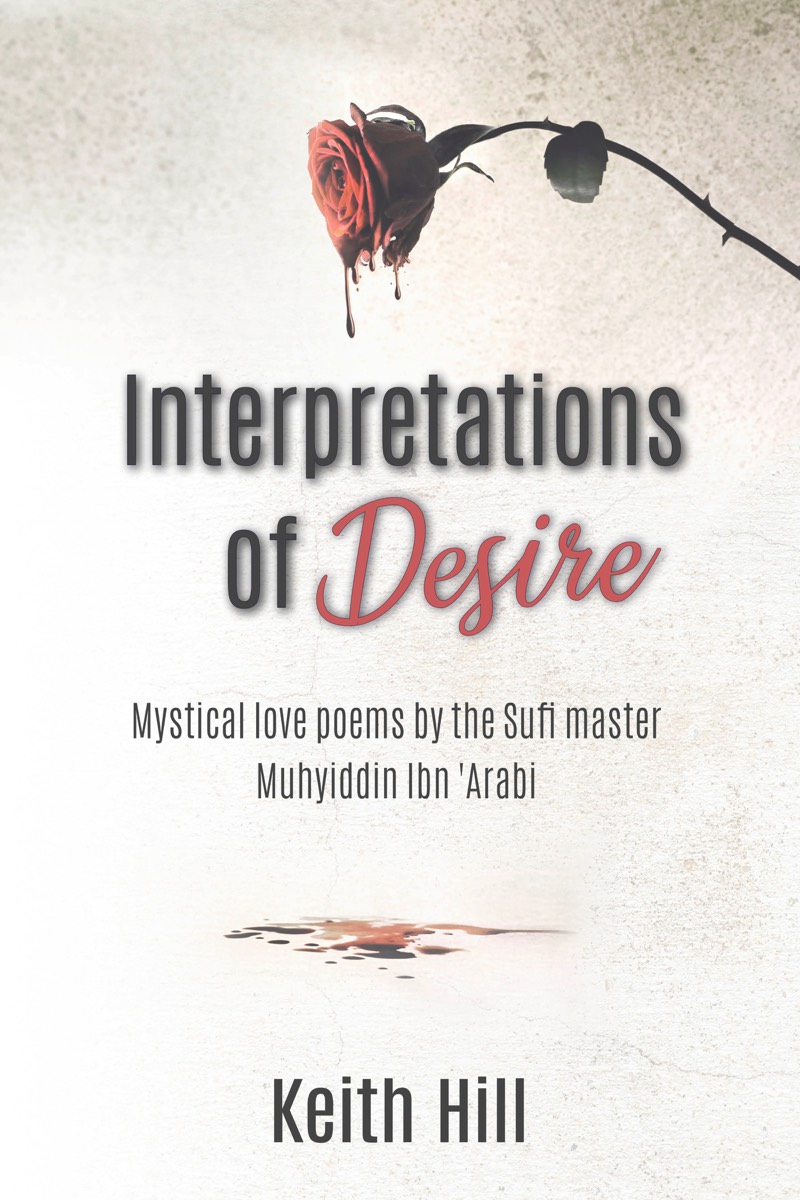In 1201, at the age of thirty-six, the Sufi Shaykh Muhyiddin Ibn 'Arabi arrived in Mecca from Al-Andalus (Moorish Spain). He recorded that he met many cultivated men and women in Mecca, but one drew his attention above all others: Nizám, the daughter of a highly regarded religious teacher.
In addition to being strikingly beautiful, Nizám was pious and so well educated she more than held her own in the discussions of religious and literary matters held regularly in her father's house. Years later, Ibn 'Arabi wrote of her: "If it were not for the weak souls who are quick to fall into error and unhealthy states, then I would undertake to explain the beauty that God had placed within her constitution and her character. She was a rain-fed meadow; a sun amongst the [mystic] knowers and a garden amongst the cultured."1
Nizám subsequently became the inspiration for Turjumán al-Aswáq (Interpreter of Desires), a collection of love poems regarded as Ibn 'Arabi's poetic masterpiece. While the poems may be read as an extended declaration of pure love for a beautiful young woman, Ibn 'Arabi was a mystic who viewed the world as an expression of God's grace and mercy, so in his poems he elevated the virtuous Nizám into a symbol of the Divine Reality. It was with this Reality that Ibn 'Arabi, like his fellow love-intoxicated Sufis, sought ecstatic union. By describing Nizám in these dual terms, as a captivating young woman and as a manifestation of the Source of all, Ibn 'Arabi not only created a collection of remarkable poems, he helped found the conventions of Sufi love poetry, today one of the most popular genres of world mystical literature. Unfortunately, originators are not always given the recognition they deserve. The love poems of the Persian Sufis, Rumi, Attar and Hafez, are much better known to Western readers, to the extent that recent translations of Rumi's poetry have made him a best-selling English-language poet. Ibn 'Arabi's poems lack the same readership. These new versions aim to show that in his intense feeling, vivid imagery, and the playful way he reworked the conventions of Bedouin desert poetry, Ibn 'Arabi has created a collection worthy of being ranked among the world's greatest mystical poems.
This collection presents R.A. Nicholson's prose translations of Ibn 'Arabi's Turjumán al-Aswáq, my aim being to make Nicholson's translations more accessible to today's readers. The Introduction contextualises the poetic traditions on which Ibn 'Arabi drew, and offers a background on Sufi thought which 'Arabi embedded in his poems. I hope all who find their way to this book will derive as much pleasure from Ibn 'Arabi's work as, over the decades, I most certainly have.
The Lover's Lament
I wish I knew if they knew
whose heart they had captured.
I wish my heart could know
what mountain pass they travelled.
Is it through living or dying
that they have endured?
Perplexed, lovers lose the path;
lost in love, they die enraptured.
Nizám Leaves
Greetings to Salmá and those
who occupy Solomon's station.
Courtesy demands a lover, which
I passionately am, offer salutation.
Would it have hurt her then
to acknowledge me in turn?
But haughty beauties, like goddess
statues, live beyond recrimination.
At dusk they departed,
as night lowered its curtains.
"Don’t leave," I implored,
"show your lover compassion."
She turned: the speeding arrows
of her gaze struck me, teeth flashed,
lightning exploded—how could
curved lips project such utter rejection?
She declared: "Is it not enough
I so fill your aching heart that each
moment you see me everywhere?
Is that not worth your celebration?"
A Lover's Plea
When they departed, my patience
and endurance departed,
yet that absent traveller still
lives inside my churning chest.
I asked my guides where riders
at noon make their rest.
They answered: "Where desire
and absence spread their scent."
So I begged the East Wind:
"Go and search through the estates,
find where in the groves they shelter,
shaded beneath their tents.
"There give them greeting
from one whose life is one long lament
due to the age that, from his heart
companions, he has been absent."
When Ravens Croaked
I'll not forget the day a homesick camel driver,
yearning to reach al-Abraq
before the night chill fell,
whipped the caravan into a frenzy.
The startled ravens sqwarked at us
as hooves churned the desert dust;
their cries spurred the braying camels
that carried us to our loved ones.
In me that same longing burns
for the blistering desert of 'Alij,
where their alluring white tents wait,
where doe-eyed maidens lounge.
Their blackened eyelashes
frame murderous looks,
their eyelids painted sheathes
for glances that cut like swords.
Dawn and dusk I swallow fevered tears
that ceaselessly well from my wounds,
on guard least those who hate me
would blacken my name with blame.
When the raven's sawing croaks
broadcast the caravan's departure,
fear of separation released
an anguish impossible to suppress.
After the drivers untied the camels' reins,
tightened their saddle straps,
and black night swallowed them all,
I swear I stared into death's eyes.
Who could ever blame me
for losing my heart to her,
for she is a moon-like beauty
loved wherever her camel halts.
They vanished into the stark night,
the drivers cutting their camels' nose
rings so they ran in a moaning fury,
the howdahs groaning and swaying.
The unblinking jet-black ravens
croaked to proclaim their leaving:
may Allah not favour
a single raven that croaked!


